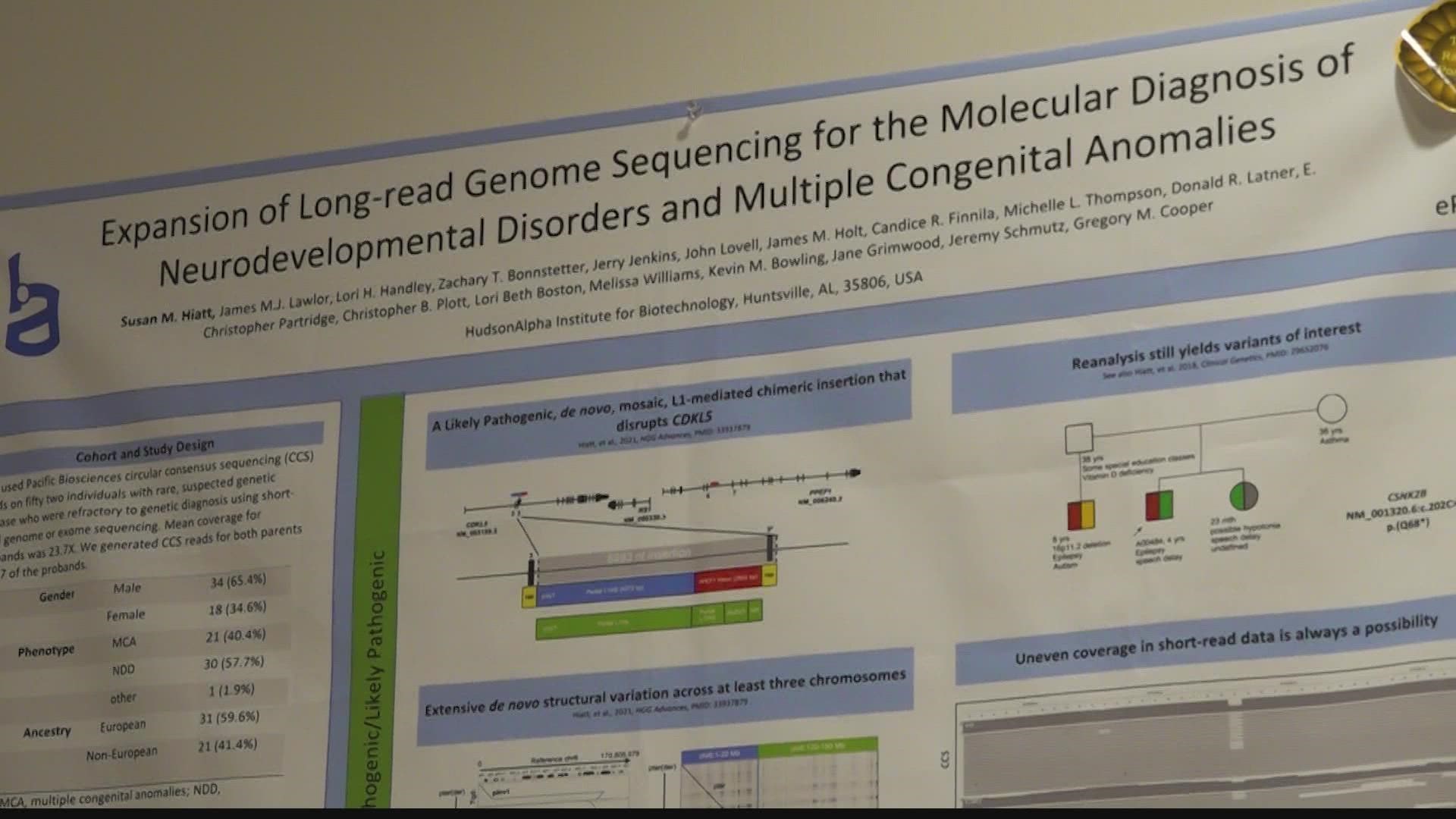HUNTSVILLE, Ala. — Groundbreaking research done by scientists at HudsonAlpha Institute for Biotechnology, along with international collaboration, has led them to link a genetic variation in a gene called "ZMYM3" with neurodevelopmental disorders.
The nonprofit organization conducts several research studies dealing with genomic sciences, often working with kids who have neurodevelopmental symptoms.
Susan Hiatt, PhD, a senior scientist in Dr. Greg Cooper's lab, says, "maybe they don't walk or talk at the expected times…we usually sequence their genomes looking for some sort of answer to why they may be having these various symptoms."
Those patients enrolled in the studies provide a cell sample for the scientists who then test the cells for interesting genetic variants.
Other scientists at HudsonAlpha,"are taking cells and changing the DNA sequence in those cells to match what is seen in the patient. And then sort of looking at some functional qualities of that changed protein to see if it acts the same as the one without the mutation or not," Hiatt said.
The hope is to be able to find variants in the same gene among patients with similar clinical characteristics.
In 2018, genetic research began on one patient from Alabama, "we found this interesting variant in this gene, this interesting change. And we submitted that gene to a website called GeneMatcher. And if another researcher around the globe is also interested in that gene and has submitted that to the gene matcher, we will get their email address," Hiatt said.
Throughout four years, Hiatt corresponded hundreds of emails with at least 30 different international researchers looking to see, "what kind of variants we found, what kind of changes, what kind of symptoms their patients may have," Hiatt said.
Through that international connection and data collection, "we eventually ended up with 27 children across the globe who have some sort of variance in this one specific gene, ZMYM3, and have developmental delays or different developmental disorders."
Hiatt says this discovery supports the idea that this genetic variant in the gene ZMYM3 is probably a developmental disorder gene, that will help other testing laboratories and patients across the globe who are looking for answers.
"We have a lot of these gene-matcher collaborations and so we have a lot of, hopefully a lot of, answers that we will find for more families in the future," Hiatt said.

